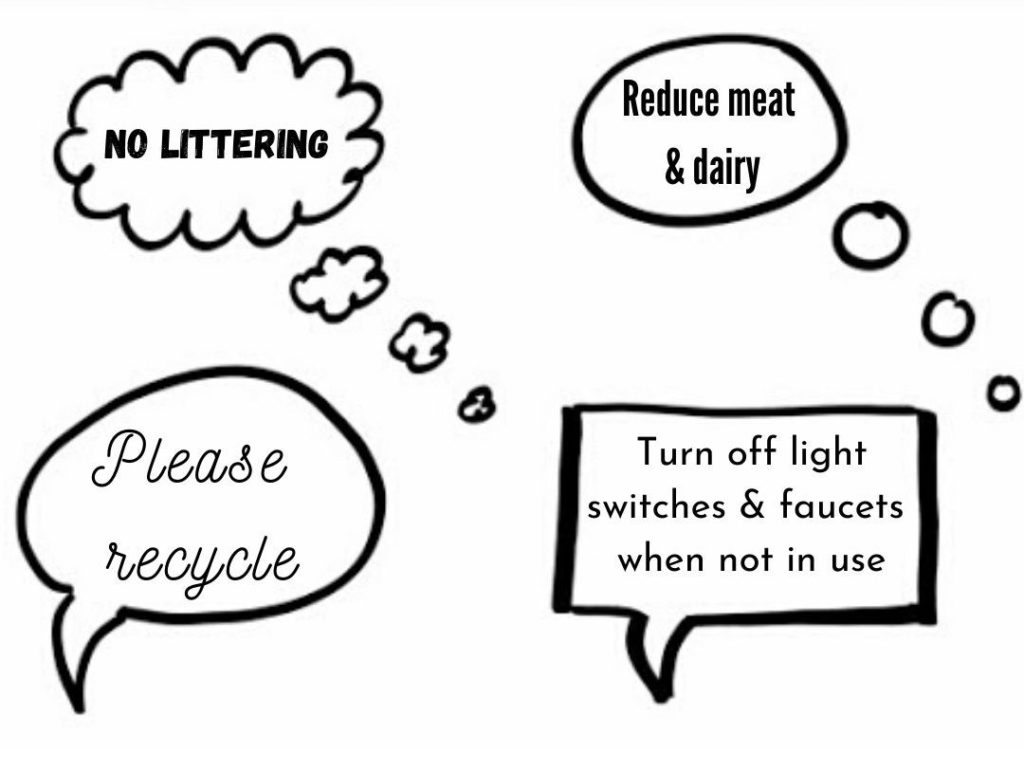My business: Eco-Friendly or Eco-Heroe?
Protect the environment. Three powerful words that surround our daily lives. We constantly hear:

These measures definitely do help our environment, but are they enough?
From a young age, we learn about the damage that mankind has caused on the environment. We must understand the undeniable relationship between climate change and its effects on the environment, health, and many other factors. As our world lives one of its scariest nightmares in the present time, some even affirm that the current pandemic “is a sign from mother nature.” Regardless of how the COVID-19 began, environmental issues come to light once again.
As much as we would like to individually help the environment, the considerable changes will arrive when we come together with businesses, governments, and nations.
What are some ways businesses can help?
- Educate your consumers. This should be the number one step business should take. The saying “In the age of information, ignorance is a choice” is as important as ever. If a business takes measures that directly or indirectly help the environment, they should highlight it when communicating with consumers. The marketing of those products, services, or ideas should touch on the benefits to the environment. Although, we must be careful with greenwashing. Greenwashing is a way of deceptively persuading consumers, in order to seem favorable to the environment.
- Does your message align with what you offer? Let’s look at the following example: A business is a leading competitor known for being sustainable and being involved in great environmental projects. If the company includes excessive amounts of plastic or palm oil throughout its product lines, then there is no alignment with their message. Palm oil is a major deforestation contributor, which leads to endangered species and an increase in greenhouse gas emissions. On the other hand, plastic is considered a main source of pollution, destroying the earth and marine life. No one expects for a business to go “plastic/palm oil-free” overnight, but there definitely must be an initiative (either to reduce or find alternative products) in order to align with their green message.
- Look for variety. While this may not be the easiest point, businesses will profit in the long run. When we talk about variety in this case, we are referring to adding new sustainable ingredients to a product or offer alternatives. An example of this is seen worldwide in fast food chains where in addition to their traditional menus, they also offer meat-free alternatives. Let’s remember how Burger King had amazing success with its new plant-based “Rebel Whooper.” While it was originally meant to attract vegetarian consumers, it also attracted the attention of non-veg consumers. At this point, labels (vegetarian, vegan. flexitarian, etc) should not be considered as a business barrier, as some choices could attract various target markets. Variety applies to food (meat, dairy…), as well as products (plastic-free, microbeads, sunscreens…). These alternatives may be costly to implement at first, but as more businesses join the movement, the more affordable it should become.
We need Eco-Heroes
Implementing these and other eco measures will bring businesses substantial gains, while also helping the environment. Unfortunately, small measures like avoiding the use of plastic straws are just not enough. Eco-friendly businesses are not enough. As environmental issues become more urgent, the need for “Eco-Heroes” increases. Businesses today must be willing to make a greater commitment, implementing significant measures that help the environment. An increasing amount of consumers seek more sustainable and green alternatives across many industries. If businesses take this matter responsibly, they will attract more consumers, increase profit and help protect our environment. Just as countries come together to stop the current pandemic, businesses can come together to build a better future for our environment.
Happy Earth Month!

Veronica Scarlett Lopez Martin is originally from Caracas, Venezuela. Scarlett is currently pursuing her master’s degree in Instructional Design & Technology at The University of Tampa. She previously worked at CenturyLink as a CSM- Client Support Manager within the strategic enterprise and government markets division. She graduated in May 2018 from The University of Tampa with a Bachelor’s Degree in International Business and Marketing. Scarlett is a blogger for the AMA Tampa Bay, with a background in marketing & technology.
Connect with her on LinkedIn.
